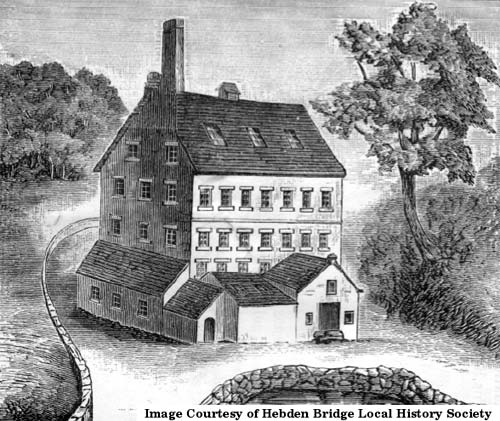From Fulling to Fustianopolis
Monday, 7 March 2011
A new community based project called From Fulling to Fustianopolis will be launched at the Alternative Technology Centre on Thursday 24th March which tells the story of the history of the textile industry around Hebden Bridge, from the early water powered fulling mills to the rise of the cotton industry during the Industrial Revolution and the growth of the Co-Operative movement.

Nutclough Mill
The project involves an exhibition at the Alternative Technology Centre, a website and booklets.
Manchester, as the centre of the cotton trade, was known as 'Cottonopolis', Bradford as 'Worstedopolis', and Edwardian Hebden Bridge as 'Fustianopolis', producing thousands of pairs of fustian trousers and jackets in the mills and sewing shops.
From Fulling to Fustianopolis documents from the time of fulling of woollen cloth to Hebden Bridge becoming the largest producer of ready-made working class clothing made from fustian, the name given to various types of strong cotton cloth.
Hebden Bridge was in an ideal position due to the easy availability of water power, which is now starting to be put back to use again, but this time using turbines instead of the water wheels of the past.
Project manager, Justine Wyatt, says "This is the story of people adapting to the environment and changing circumstances and creating new opportunities out of them".
The project was put together by local people with the support of the Heritage Lottery Fund, the Hebden Bridge Local History Society, Calderdale Museum Service and many others. end Contact: Alternative Technology Centre, 01422 842121, info@alternativetechnology.org.uk.


